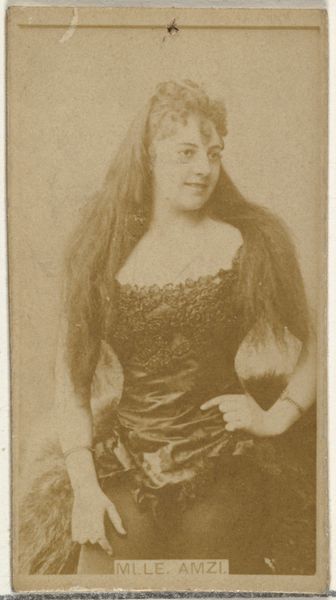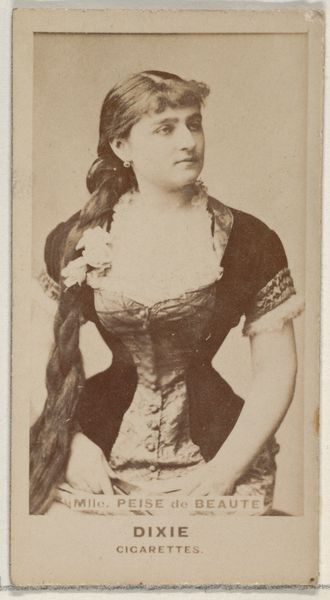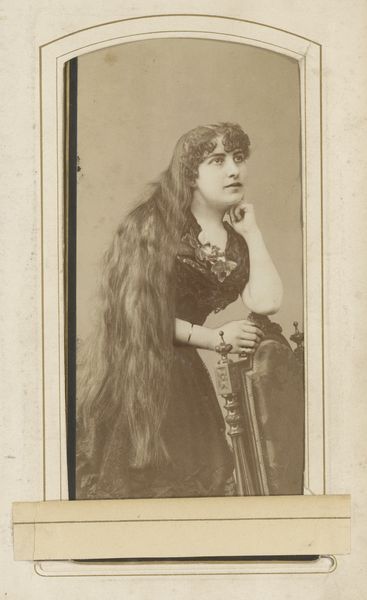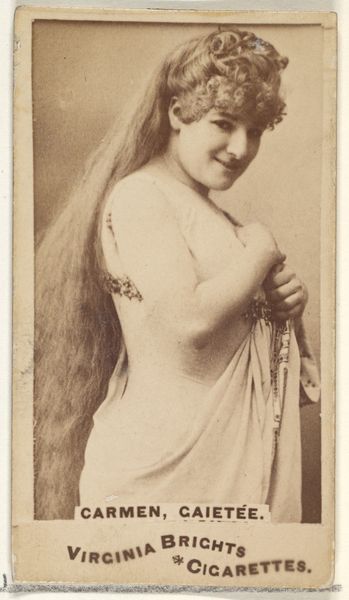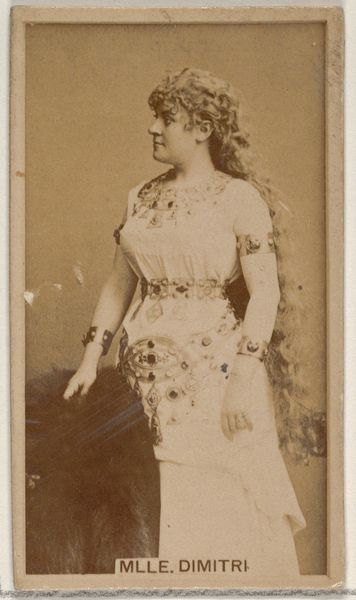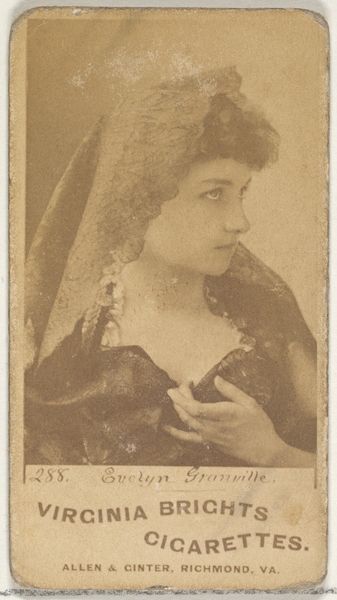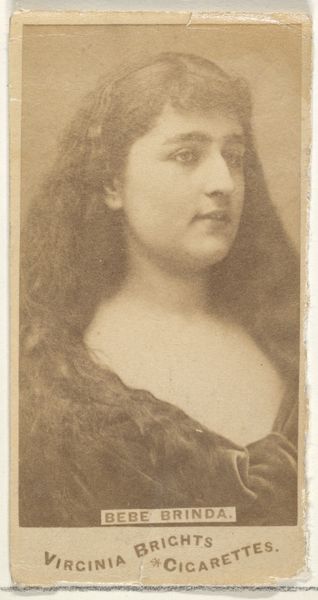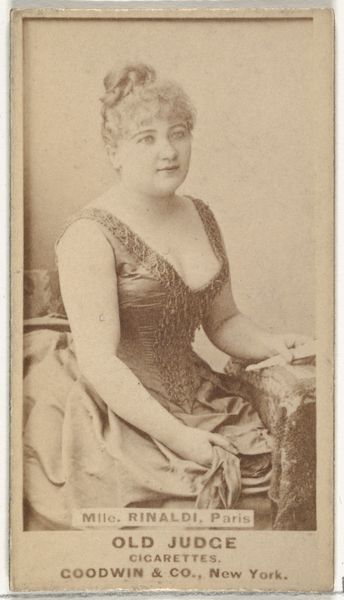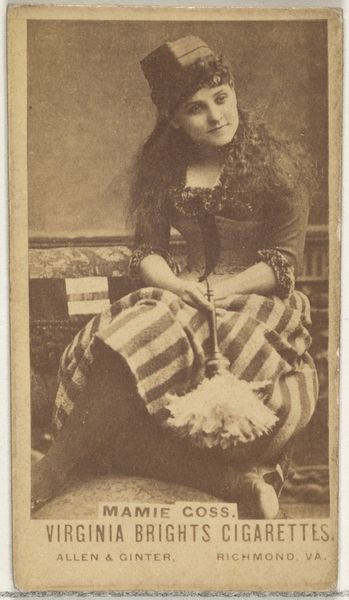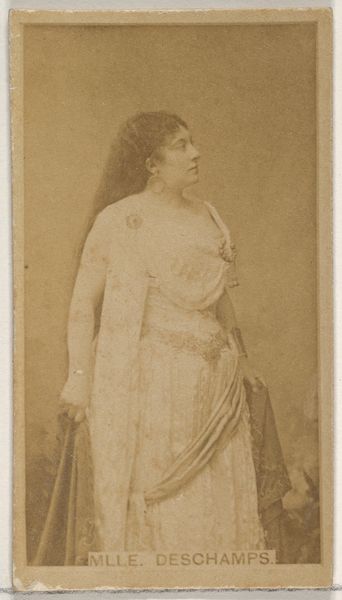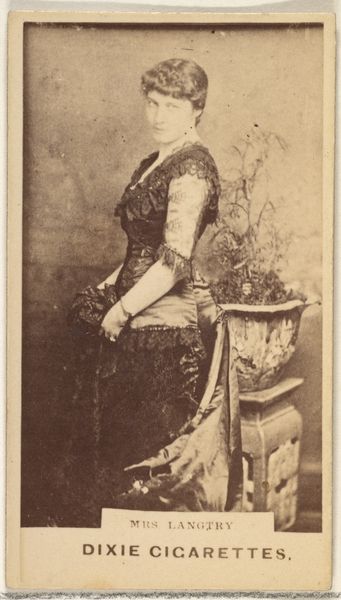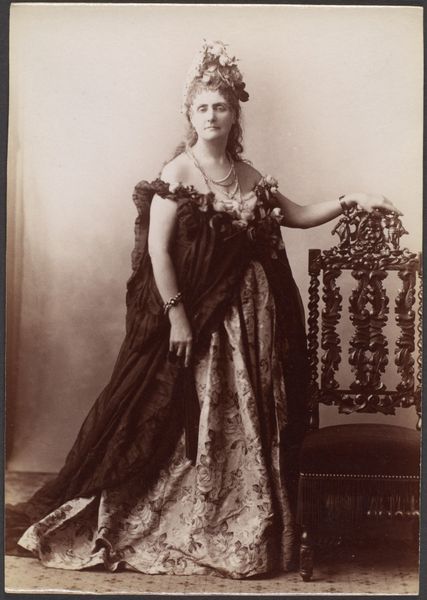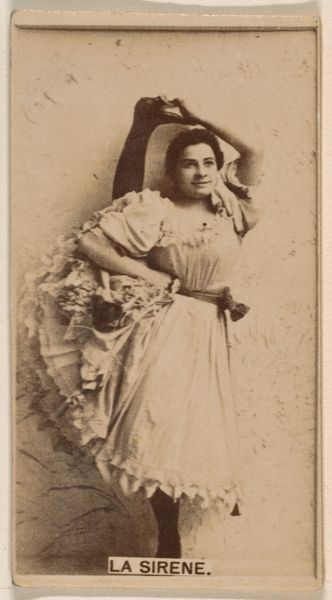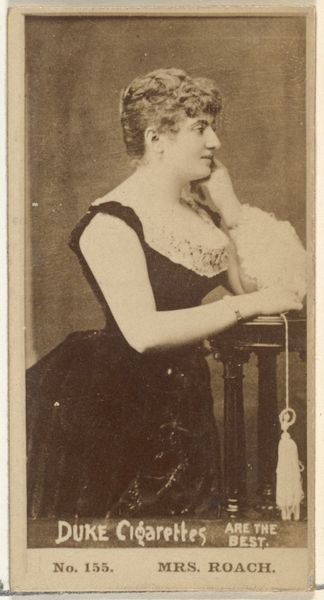
Mlle. Amzi, from the Actors and Actresses series (N45, Type 8) for Virginia Brights Cigarettes 1885 - 1891
0:00
0:00
drawing, graphic-art, print, photography
#
portrait
#
drawing
#
graphic-art
# print
#
photography
#
19th century
#
post-impressionism
Dimensions: Sheet: 2 5/8 x 1 1/2 in. (6.6 x 3.8 cm)
Copyright: Public Domain
Editor: This is a photographic print entitled "Mlle. Amzi, from the Actors and Actresses series (N45, Type 8) for Virginia Brights Cigarettes," created by Allen & Ginter between 1885 and 1891. There's a striking elegance to this portrait. What do you see in this piece? Curator: I see a carefully constructed image deeply embedded in the politics of representation and consumption. The "Actors and Actresses" series wasn't just about art; it was about marketing, commodifying both the performers and the burgeoning concept of celebrity. Editor: So it's more than just a portrait of an actress? Curator: Absolutely. Consider the context. Late 19th-century America saw the rise of consumer culture intertwined with rigid social hierarchies. These cards, inserted in cigarette packs, democratized art viewing, but also perpetuated specific ideals of beauty and fame. Mlle. Amzi, whoever she was, becomes a vehicle for selling cigarettes, her image filtered through a lens of male gaze and capitalist desire. How do you think the intended audience might have received it? Editor: Perhaps they were aspiring to the lifestyle of the actress. Is she pointing, or gesturing to something? Curator: Perhaps... Her pose, her gaze, it all invites speculation. Was it about admiration, aspiration, or something else? These images also raise questions about agency – how much control did Mlle. Amzi have over her representation? And how did race and class intersect with her identity and career as an actress? These aren't easy questions, but they're essential for understanding the complexities of this seemingly simple portrait. Editor: It definitely reframes how I initially viewed it. Thanks! I will continue to consider her context, not just her as an actress. Curator: Exactly. Seeing art through an intersectional lens reveals so much more. There's always a story behind the surface, one woven with threads of power, identity, and social change.
Comments
No comments
Be the first to comment and join the conversation on the ultimate creative platform.
